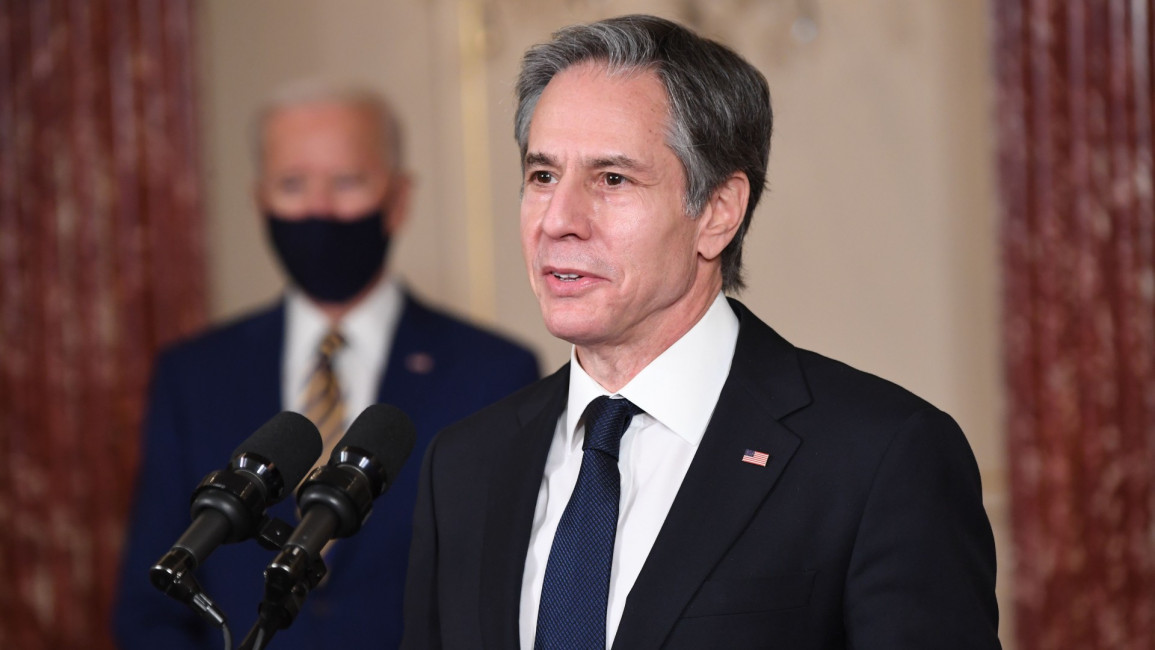Blinken 'asks Israel to facilitate' transfer of Covid-19 vaccines to Palestinians
This comes after Israeli Prime Minister Benjamin Netanyahu announced he will send "unused" vaccines to several countries that require assistance, which included the Palestinian Authority and Honduras.
However, this “symbolic amount” consists of only thousands of doses - a small number of the vital vaccine that is needed to assist Palestinians struggling to survive in a country strangled by the global pandemic.
Palestine’s Foreign Minister Riyad al-Maliki said on Monday that Israel failed to give vaccines to Palestine and has even stopped foreign shipments from bringing the medication into the West Bank and Gaza. Israel denies these claims.
Meanwhile, the United Nations and global rights groups have said that Israel has an obligation under international law to vaccinate all Palestinians living under occupation in the West Bank and Gaza, where Israel maintains a tight blockade on and Hamas-run enclave.
Read more: Israel says giving 'unused' vaccines to Palestinians
Israel has already sent several thousand vaccine doses to the occupied West Bank to inoculate Palestinian Authority medical workers.
Meanwhile, the Jewish state has administered the two recommended shots of the Pfizer/BioNTech jab to more than three million people, roughly a third of its population.
While many countries - including wealthy nations - are struggling with vaccine supply, Israel has avoided shortages since launching inoculations in December.



